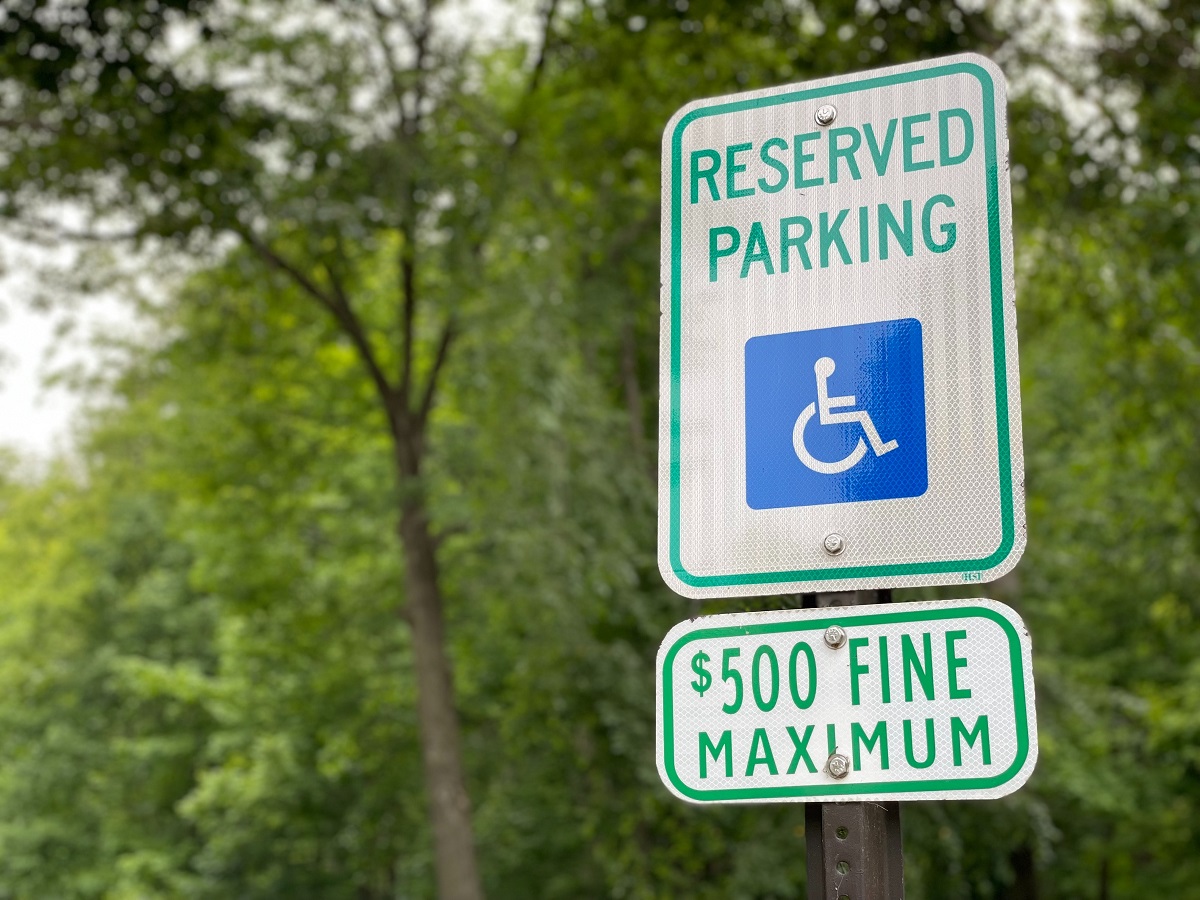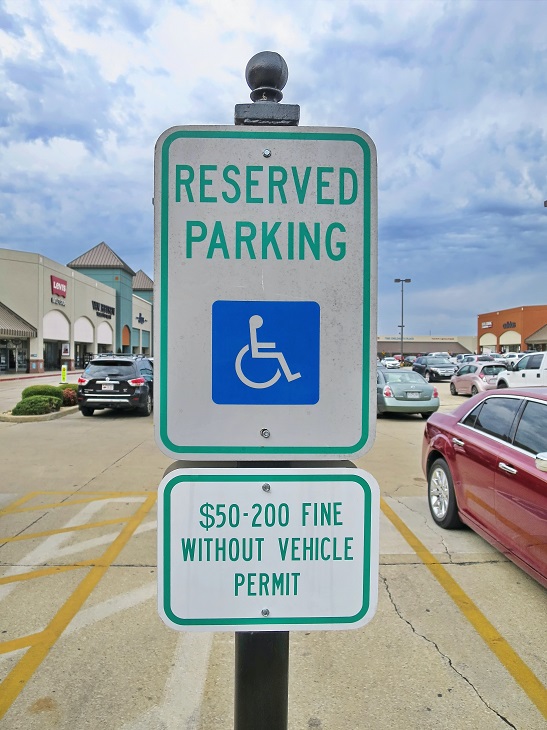Parking Etiquette 101: Being Mindful and Respectful in Handicap Parking Spaces

As we navigate the bustling world of urban living and suburban sprawl, parking spaces have become a coveted commodity. But amid the hustle and bustle of daily life, it’s vital that we remain mindful of those who rely on accessible parking, particularly in handicap parking spaces.
Today we’ll take a brief look at the importance of parking etiquette in these designated areas, emphasizing the need for respect, understanding, and adherence to the rules that govern them. Whether you’re looking to learn more about North Carolina disability parking laws, Iowa handicap parking rules and regulations, Kentucky handicap parking enforcement, or anything in between, this is a great place to start!
Understanding the Significance of Handicap Parking Spaces
Handicap parking spaces are not just a convenience; they’re a necessity for individuals with disabilities and mobility issues. These spaces are strategically located to provide easy access to public facilities, ensuring that those with mobility challenges can participate fully in society. By designating specific parking spots, society acknowledges the need for inclusivity and accessibility.
It’s crucial to recognize that handicap parking spaces are not a privilege for the few, but a requirement for those with disabilities. These spaces often feature amenities such as wider access aisles and ramps to accommodate wheelchair users. In essence, they’re a lifeline for people whose mobility is restricted due to various physical conditions.
Know the Rules: Who Can Use Handicap Parking Spaces?
To promote fairness and ensure that handicap parking spaces serve their intended purpose, strict guidelines govern their use. Typically, these guidelines are established by local authorities and adhere to national standards. In the United States, the Americans with Disabilities Act (ADA) outlines specific criteria for obtaining a handicap parking permit.
In general, individuals eligible for handicap parking spaces include those with mobility impairments, certain medical conditions, or disabilities that affect their ability to walk. It’s vital to respect these rules and not misuse handicap parking spaces, as doing so can result in fines and penalties.
The Importance of Proper Identification
To use a handicap parking space legally, individuals must display a valid handicap parking permit. This permit may come in the form of a placard, a license plate, or a special decal issued by the relevant authorities. It’s imperative to hang or display the permit visibly while parked in a handicap space.
This visible identification serves multiple purposes. Firstly, it communicates to law enforcement and parking attendants that the vehicle is legally entitled to occupy a handicap parking space. Secondly, it prevents misuse of these spaces by those without the proper authorization.
Common Violations and their Consequences
Despite the clear rules and regulations surrounding handicap parking spaces, violations are unfortunately common. Some of the most frequent infractions include:
Parking without a valid permit
If you park in a handicap parking space without displaying a valid permit, you may receive various fines and penalties.
Misusing someone else’s permit
Handicap parking permits are non-transferable and should only be used by the individual to whom they are issued.
Parking in access aisles
Access aisles next to handicap parking spaces are meant to provide additional space for individuals with mobility aids. Parking in these aisles can obstruct access and pose serious challenges for those with disabilities.
Consequences for these violations often involve fines, towing of the vehicle, or even potential legal action. These consequences vary between states throughout the US – Maine handicap parking violation penalties won’t be exactly the same as Oklahoma disability parking violation fines, for example, and a Minnesota handicap parking fine cost will differ from a New Jersey handicap parking violation fine.
No matter which state you’re in, it’s crucial for all drivers to understand that handicap parking spaces exist to enhance accessibility, and violating these rules undermines the principles of inclusivity and respect.

The Role of Public Awareness
One of the most effective ways to ensure proper parking etiquette in handicap spaces is through public awareness. Education campaigns, both online and offline, can play a pivotal role in fostering understanding and empathy. By disseminating information about the challenges faced by individuals with disabilities, communities can create a culture of respect and adherence to parking regulations.
Businesses and public institutions can also contribute by providing clear signage, maintaining well-marked handicap spaces, and actively enforcing parking policies. By taking a proactive approach, we can all help to create an environment where everyone feels welcome and accommodated.
Practicing Mindful Parking in Handicap Parking Spaces
Ultimately, parking etiquette is a reflection of our collective values and attitudes toward inclusivity. To ensure that handicap parking spaces fulfill their intended purpose, it’s crucial for each individual to take responsibility for their actions. Here are some practical tips for practicing mindful parking:
Respect designated spaces
Park only in designated handicap spaces if you have a valid permit. Avoid parking in access aisles or blocking ramps.
Report violations
If you notice someone misusing a handicap space, report it to the relevant authorities. Many areas have dedicated hotlines or online reporting systems for these kinds of incidents.
Spread awareness
Share information about handicap parking regulations with your friends, family, and colleagues, and if you know someone who’s disrespecting disabled parking rules, don’t be afraid to let them know how this hurts others. Education is a powerful tool in creating a culture of respect.
***
Parking etiquette may seem like a minor concern to many. However, for individuals with disabilities, it can be a crucial determinant of their ability to participate fully in society. By understanding the significance of handicap parking spaces, adhering to regulations, and promoting awareness, we can collectively contribute to a more inclusive and compassionate community. Remember, practicing parking etiquette isn’t just a legal obligation; it’s a demonstration of our commitment to creating a world where everyone has equal access and opportunity.
If you’re looking for more information on anything from Maryland handicap parking laws and fines to Ohio handicap parking placard renewal, we’ve got you covered with our website and blog full of state-specific info. Check it out today!
Featured image by Steve DiMatteo on Unsplash